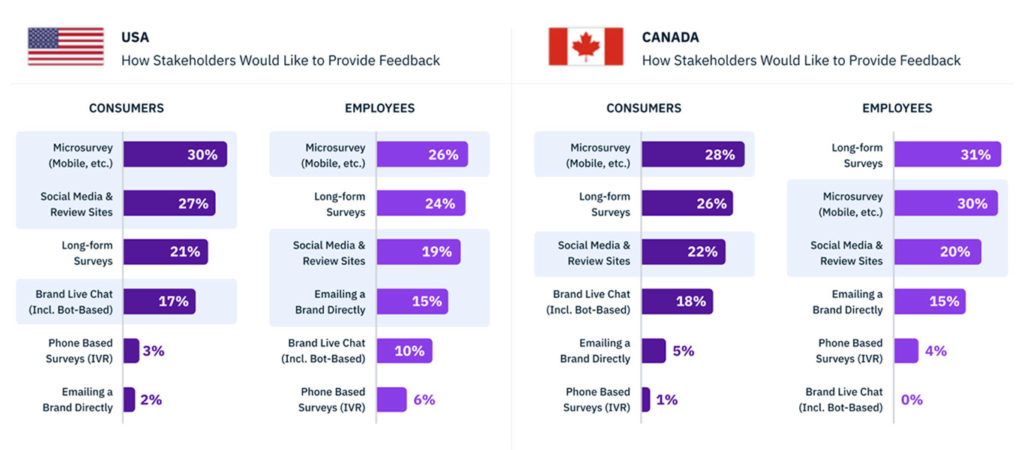Throughout the history of experience programs, surveys have been the go-to tool for gauging the employee and customer experience. But should surveys (as we’ve traditionally thought of them) be the first tool brands turn to in order to fill in the blanks?
Diving into the Data
In our latest Experience Trends Report, we found that emerging customers and employees are far less likely to take a traditional employee or customer experience survey. In fact:
- Only 19% of U.S. Gen Z customers are likely to complete a traditional survey
- Only 22% of U.S. Gen Z employees are likely to complete a traditional survey
- Only 28% of Canadian Gen Z customers are likely to complete a traditional survey
- Only 41% of Canadian Gen Z employees are likely to complete a traditional survey
And that’s just the emerging generation. When we asked customers and employees across all age demographics how they would prefer to leave feedback for brands or their employers, we saw a similar story unfold.
We also added additional insights by comparing to similar research we conducted on the same subject three years ago. The highlighted items in the chart below are the listening methods that have seen significantly more interest in the last few years. Microsurveys, social media and review sites, direct email, and brand live chat have all grown in popularity, whereas traditional employee and customer experience surveys have lost traction.

So, if customers and employees are less likely to fill out a long-form survey, what other methods should you consider? And where would it be appropriate to leverage a survey?
The Future Role of the Survey
The role of employee and customer experience surveys will be different in the future (especially as Gen Z becomes more prominent in the customer base and workforce), and that’s a good thing! In the future of feedback, surveys will be just one of the tools in the tool box for businesses looking to understand experience stakeholders—but brands should not be survey obsessed. Instead, they will need to look first to their feedback strategy and to their inferred and indirect data before they consider creating another survey.
Our experts advise a process of elimination that helps you understand which listening tools to use and when—and they’ve laid it out step by step. Download the full piece to discover how you can effectively listen to customers and employees in 2022 (and beyond)!
Download

